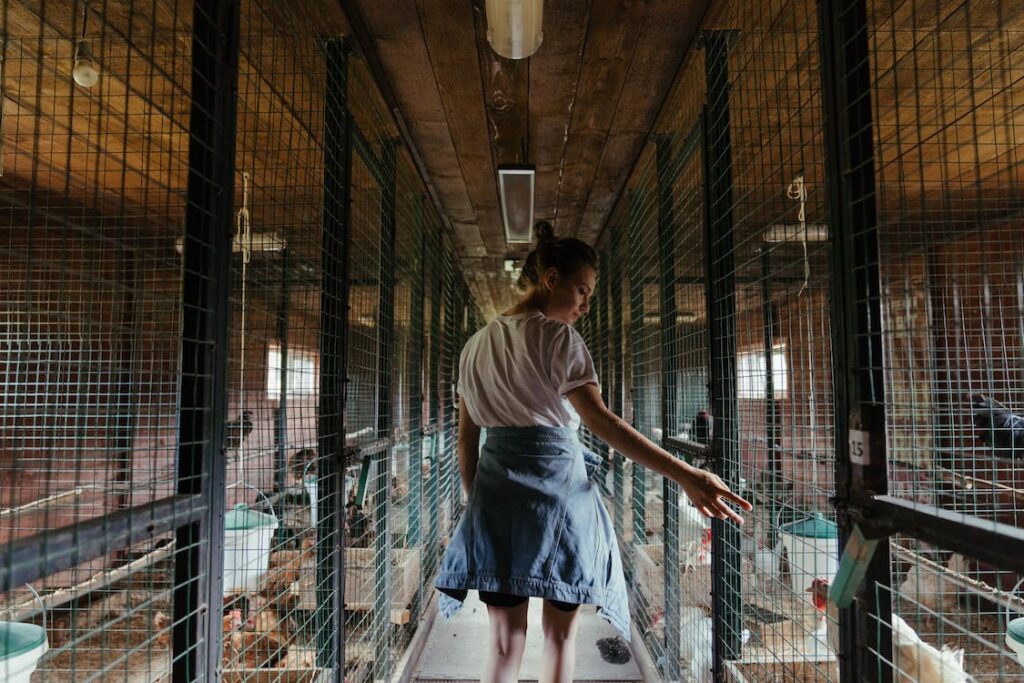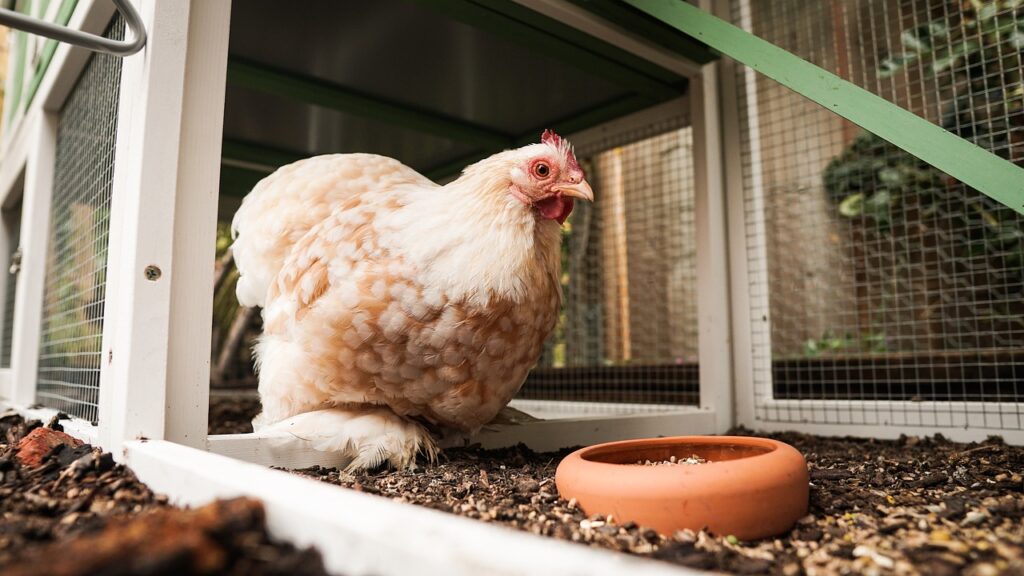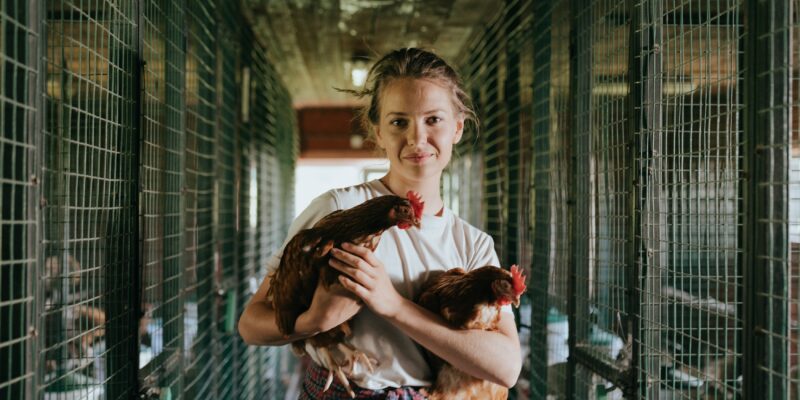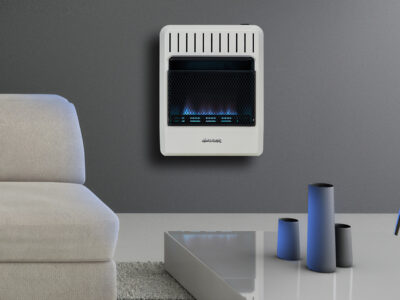Keeping chickens is a rewarding activity, especially if you have the space. Backyard chickens give you eggs, and you get to have fun while doing household chores.
If you have a farm, of course, you will have chickens roaming around the land. Many people in urban areas also have started keeping chickens in their backyards. Keeping chickens also teaches children responsibility.
For a healthy flock of chickens, you need a chicken coop. A chicken coop helps keep your chickens safe from predators and your neighbors. So, if you have a small chicken coop, then read this article to know how often to clean a small chicken coop for everybody’s safety.
This way, you can enjoy your chickens and their delicious eggs.
Guidelines to Clean Chicken Coop

Having a clean coop is a requirement for the continued health of your flock, along with the right set of tools. Keeping animals requires hard work and commitment, but if you follow a routine, you can keep your flock of chickens happy and healthy. There are cleaning taskings you need to do daily, weekly, monthly, and biannually.
Daily Tasks
- Clean the feeders and waterers. Remove droppings, feathers, or anything else that should not be there.
- The extra food from feed boxes must be removed at night since they attract predators.
- Food and water must be refreshed in the morning.
- Use a trowel to scrape or scoop out chicken droppings; this must be done since it contains bacteria. You can add the chicken droppings to your compost.
- Collect the newly laid eggs and organize the nesting boxes afterward.
- Inspect the flock of chickens and the chicken coop for any damages.
Weekly Tasks
- Put fresh nesting materials, like bedding, in the coop; this keeps the poultry happy, which gets you high-quality and fresh eggs. You do not want bacteria and ammonia building up in the bedding.
- The waterer and feeders need to be cleaned and disinfected. You can use a DIY cleaning solution made up of equal parts water and vinegar. Do this task twice a week if your flock is a large one.
- The walls and ceilings will need dusting, especially if dust and cobwebs have built up.
Monthly Tasks
- Replace any damp bedding.
- Clean any of the hard surfaces inside the chicken coop. Use the water and vinegar mixture on the doors, walls, and ceilings. The window glass can be cleaned with a non-toxic spray. All of this is done for proper ventilation.
- The roosting bars must be scraped since chicken poop can build up there. A garden hose can be used for scraping, and the vinegar and water mixture for disinfecting.
- Rake any extra manure, and the ground needs to be flattened also.
Biannually Tasks
- Schedule a deep clean every six months.
- Clean out any old feathers, droppings, dirt, and nesting materials using shovels and brooms. Put it into your compost.
- Remove any dirt, dust, or spider webs from the chicken coop.
- The surfaces need to be scrubbed.
- Use a hand brush and natural cleaning solution so that the chicken coop is disinfected.
- The nesting and feeding boxes have to be cleaned as well.
- Use the hose to clean the entire chicken coop.
- Remove any excess water.
- Open windows and doors so that the chicken coop dries out.
- If the nesting and feeding boxes are removable, then put them on the roof so that they dry out faster.
- When the chicken coop is completely dried out, then put fresh nesting materials inside to make it comfortable for the hens.
Things to Remember when Cleaning the Chicken Coop

Your health and safety should also be considered when performing these chicken coop cleaning tasks daily, weekly, monthly, and biannually.
- Make sure you put on a mask and gloves for your protection. You want to avoid any bacteria lingering in a chicken coop. A chicken may give you a disease like bird flu, salmonella, and E. coli.
- Designate a specific set of shoes and clothes just for cleaning the chicken coop. This way, you will not contain your clothes or track germs in your house.
- Natural cleaners should be your best friends. Usually, household cleaning liquids contain harsh ingredients like bleach. These ingredients are harmful to chickens, so shop for natural cleaners. A cost-effective method is to make a DIY mixture of water and vinegar.
- Keep a lookout for wear and tear in the chicken coop. Just like everything else, wear and tear is normal. That’s why when you are cleaning, see if anything needs repair. It is better to repair anything early than to let it fester and worsen. You do want your chickens hurting themselves on sharp edges or letting predators in the coop through loose chicken wire.
Transform your breeding plans with our “small chicken coop plans” suitable for chicken breeders.
Final Thoughts
A clean chicken coop is good for the chickens and you as well. The coop keeps your chickens safe from predators in rural and urban areas. Your chicken flock stays healthy with a clean coop.
The size is also an important factor in chicken coops since you want your chickens to have enough room; just like you, even your chickens want a cozy bedroom.
A clean chicken coop should be your priority since it helps in keeping your flock in good health. This article lets you know how often you need to clean a small chicken coop; otherwise, you are putting your entire flock at risk of infections.
Be sure to check out these other posts for more fascinating insights:










Comments